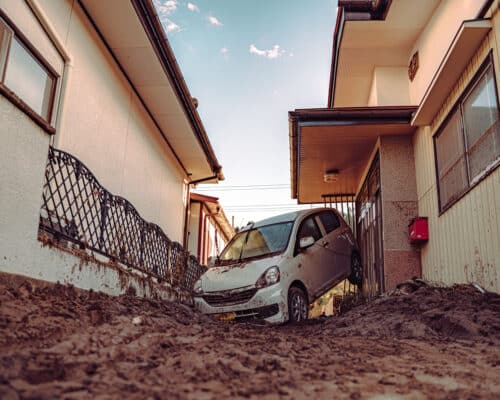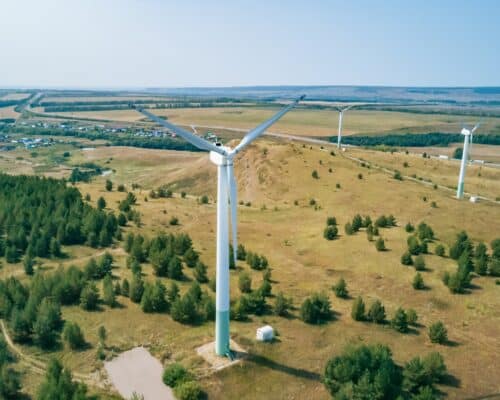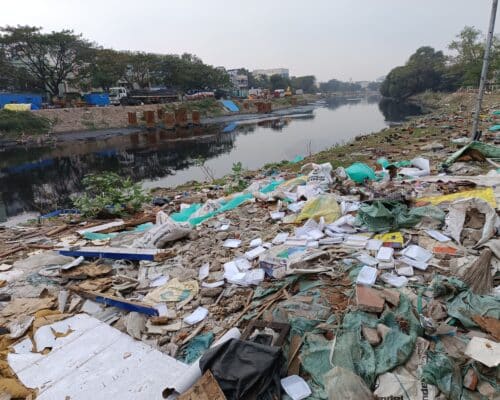Articles
New WMO Report: The Extreme Weather Events Impacting the World
The new report showed that climate change's impacts are being felt across the globe with no signs of slowing down.

The Growing Burden of Japan’s Climate Change Impact
Japan’s climate change impact is disrupting people’s lives as heat and humidity create increasingly dangerous conditions in the island country. As the country prepares for the 2023 G7 presidency in May, it will need to convince the world that it can achieve its pledge of carbon neutrality by 2050.
Indonesia Dances Around Taxonomies to Mobilise Capital for Its Coal Phaseout Programmes
Since Indonesia signed the US$20 billion Just Energy Transition Partnership (JETP) agreements late last year, the government has mobilised multiple workstreams to create policy structures to support the critical first stage of early coal retirement. However, more than mere tweaks to criteria for supporting early coal retirement may be required.
Taiwan’s Tech Giant TSMC’s Net Zero Pathway Falls Short
Giant chipmaker TSMC is facing a backlash over its enormous fossil fuel usage and carbon emissions, even as much of the global tech sector cleans up its carbon footprint.
Coal Phase-out Accelerates Globally Except in China: ‘Boom and Bust’ 2023
Thanks to its unprecedented renewable energy capacity additions, China was poised to be a leader in the battle against climate change. However, its coal pivot risks tarnishing that.
What Does an Ambitious Clean Energy Target Mean for Bangladesh?
Bangladesh’s existing power system can incorporate a significant amount of renewable energy, the country needs to invest steadily in clean energy to reach the 40% generation capacity goal. The economic competitiveness of renewable energy also makes it a favourable choice in the future.
Japan’s ‘Green Transformation’ (GX) Is Stacked With Fossil Fuel-based Technology
Japan is promoting its green energy transformation, but it's a false narrative since it still includes liquefied natural gas (LNG), coal and fossil fuel-based technology. Japan must also quickly set forth a formal coal reduction and elimination plan before it hosts the next G7 meeting in May.
Fossil Fuel Imports Risk Japan’s Energy Security
Japan has low domestic fossil fuel production yet relies on fossil fuels for most of its energy. High dependence on foreign imports is creating energy security concerns. However, Japan remains seemingly uncommitted to completely phasing out fossil fuels, lagging behind other G7 nations.

Contracting Debacles Underscore Long-term LNG Risks in the Philippines
Economic sustainability of LNG remains in doubt amid power deal issues and global price volatility says Sam Reynolds of IEEFA.
What are Scope 1, 2 and 3 Emissions and Their Role in Fighting Climate Change
Scope 1, 2 and 3 categorise a company's direct and indirect greenhouse gas emissions. Reducing all three is essential for corporate responsibility and meeting net zero.
EV Growth Gains Momentum in Southeast Asia
Electric vehicle (EV) sales growth in Southeast Asia is gaining momentum. However, hurdles still need to be overcome, including using fossil fuel-based power generation to charge EVs, a lack of infrastructure and investment and insufficient government incentives.

G7 Ministers’ Meeting 2023: What Is the Desired Outcome?
The G7 Climate and Energy Ministerial Meeting is shaping up to be a roadshow for Japan's questionable technologies. If the world is to stand a chance in limiting climate change to 1.5°C, the G7 reject the proposals, speed up coal phase-out and limit gas investments.
Cost and Viability Plague Carbon Capture and Storage in the Power Sector
Carbon capture and storage (CCS) is being pushed as a decarbonisation pathway for the power sector. However, all commercial-scale CCS projects paired with thermal power plants have underperformed, and costs are prohibitively high. Alternatively, wind and solar are both proven, cost-efficient technologies. Investors and decision-makers need to refocus their efforts on transitioning away from fossil fuels.
Most Popular
Most Popular
Categories
-
10
-
34
-
126
-
4
-
17
-
46
-
52
-
11
-
10
-
15
-
24
-
6
-
1
-
5
-
6
-
279
-
199
-
17
-
24
-
1
-
1
-
23
-
41
-
44
-
87
-
18
-
86
-
41
-
17
-
11
-
43
-
52
-
86
-
294
-
22
-
44
-
36
-
10
-
42
-
36



